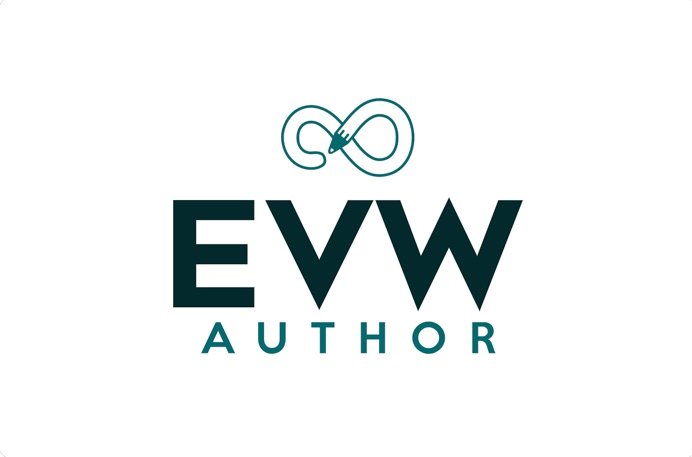I’m very excited to announce something I was beginning to think I might never do again….
Write another book.
After releasing Mindful Moments in 2021, I told myself I wouldn’t write another non-fiction book unless I felt an extremely strong connection to the subject matter and thought the book could add real value to peoples' lives.
As I’ve seen developments in A.I. continue to grow exponentially I couldn’t shake the thought of how incredibly unprepared humanity is for the unfathomable changes artificial intelligence will soon bring about. So this new, as yet untitled, book project checked those boxes for me.
This project will be a guidebook for navigating this new age of artificial intelligence while keeping our humanity and sanity intact. Humanity is about to be upended in so many ways and we're going to need some help navigating this new paradigm.
As I have done with my previous two books (The Perfect Pause and Mindful Moments), Hive will be the incubator for this project.
Periodically I’ll be releasing drafts of new chapters of the book in blog form. This is the first. I hope you enjoy it and I can’t tell you how excited I am to be working on a project like this again. I feel this subject matter will be desperately needed in the next few years. This book will also serve as a good finale in a self-care trilogy (The Perfect Pause, Mindful Moments, This New Book.)
Feel free to chime in with any feedback or ideas for new chapters along the way! As always, thanks to the Hive community for your incredible support. The idea has now been released into the universe...LFG! 😊
Transforming Triggers Into Tools

Triggers—each of us have them. Those stubborn, intense emotional responses that seem to occur without us even realizing. It can be a certain word or phrase someone says to you during a disagreement or that person on social media who shares an opinion of something you don’t agree with. Triggers manifest as unconscious reactions to words, situations, and memories that bring up past wounds or unresolved trauma.
Instead of viewing triggers as mere disruptions to our peace, or inciting reactions that are beyond our control, we can harness them as powerful tools for emotional/mental health and personal growth. By understanding and working with our triggers, we can transform them from something that holds us back into catalysts for becoming a better version of ourselves.
Understanding Our Triggers
Triggers are reactions that are, often, rooted in the past. They spring up from trauma, unresolved conflicts, or deeply ingrained beliefs. When triggered, we might experience a myriad of reactions like – anxiety, anger, sadness, or even physical symptoms like a racing heart or nausea. Our reaction to triggers can make us feel embarrassed and feel like we’re not in control of our own emotions. The moment we begin to recognize these responses as red flags of issues we need to work on rather than just reactions can provide valuable insights about how we can begin a journey to healing ourselves.
"The effects of unresolved trauma can be devastating. It can affect our habits and outlook on life, leading to addictions and poor decision-making. It can take a toll on our family life and interpersonal relationships. It can trigger real physical pain, symptoms, and disease. And it can lead to a range of self-destructive behaviors." -Peter A. Levine
Steps to Flipping the Script and Turning Triggers into Tools
Identifying the Trigger: The first step in flipping the script on triggers is to identify them. What really sets you off? Pay attention to things that evoke strong emotional reactions. Keeping a journal of these trigger points can help you to understand exactly what needs to be worked on.
Understanding the Source: Once a trigger is identified, realize the irrational nature of your response. Delve deeper into its origin story. Ask yourself, "Why does this situation make me feel this way?" or "What past experiences caused me to react like this?" This introspective exercise can reveal unresolved issues or beliefs that need attention.
Practicing Mindfulness: Developing a greater mindful awareness of your triggers can prevent autonomic reactions. Techniques such as conscious breathing, meditation, or simply pausing before responding allow you to create a space between the trigger and your reaction. This pause provides an opportunity to choose a more thoughtful response.
Reframing the Experience: Instead of viewing triggers as negative or damaging, see them as what they are, opportunities to become a better you. Each time an unreasonable response in you is triggered it’s a chance to understand yourself better and to address the underlying issues. Reframing a trigger in this way can reduce its power over you and transform it into a constructive force.
Seeking Support: Sometimes, we simply can’t do it alone. Some triggers are connected to deep-seated trauma or significant life events. Working with a therapist or counselor can provide professional guidance in navigating these complex emotions and developing coping strategies.
Benefits of Using Triggers as Tools
Enhanced Self-Awareness: Understanding your triggers deepens your awareness of your emotional mind space, allowing you to recognize patterns and underlying beliefs.
Emotional Self-Regulation: Learning to respond rather than react to triggers improves emotional regulation. This instantly gives you more control over your life by not making you a slave to your emotions. It will also make you a better listener, and will deepen your connection with others.
Personal Growth: Working through our triggers promotes healing and growth, leading to a more balanced and resilient mental and emotional state.
Improved Relationships: Recognizing and managing triggers can lead to healthier and more balanced relationships, as you become more aware of how your reactions affect others.
Triggers can bring us pain, they can be an impediment to our mental health and balance, and can spark profound embarrassment. Triggers also hold great potential for personal growth if we just think about them a bit differently. By identifying, understanding, and working with our triggers, we can transform them from sources of pain into extremely powerful tools for building a better life. Embrace these triggers not as enemies but as the universe's way of telling you, “Here, this is exactly what you need to work on.”
Be well and make the most of this day. Thank you for reading!
Growing weary of the ads and divisiveness on mainstream social media? If so, why not try Hive? Click on this link to sign-up and join our growing global community.
Let’s Keep In Touch





